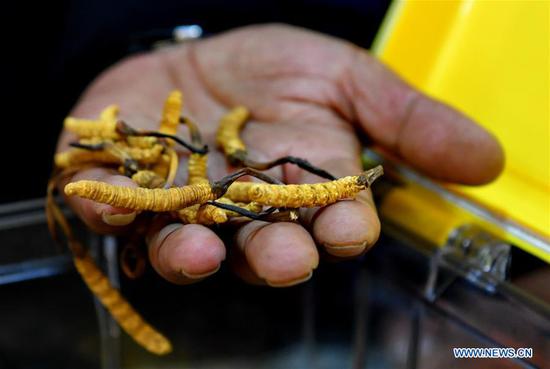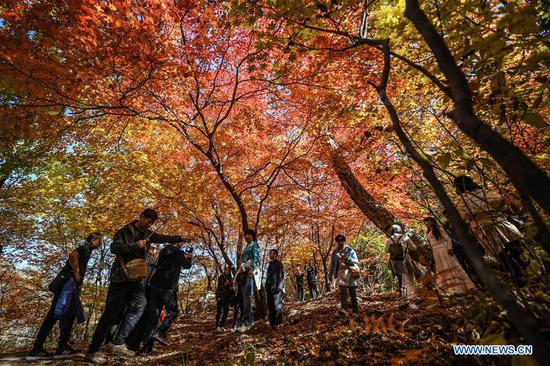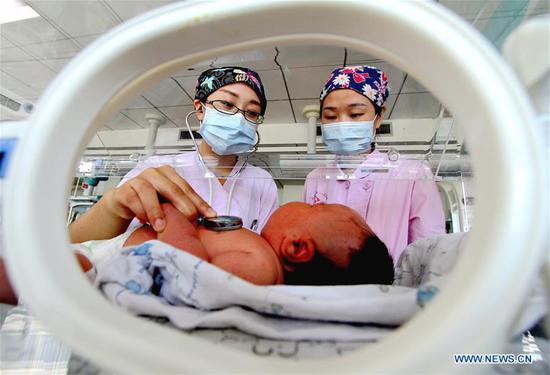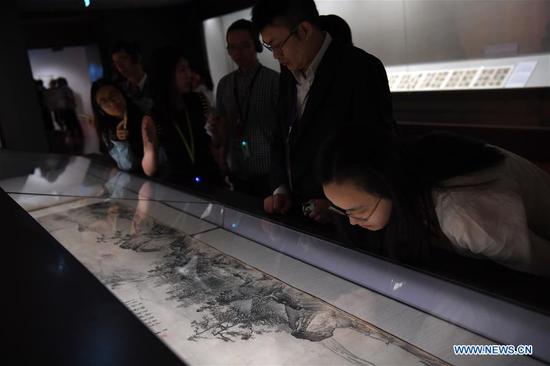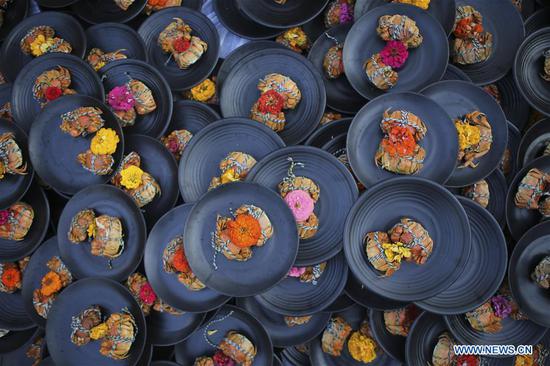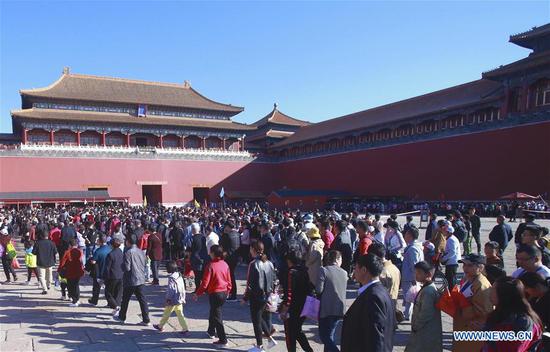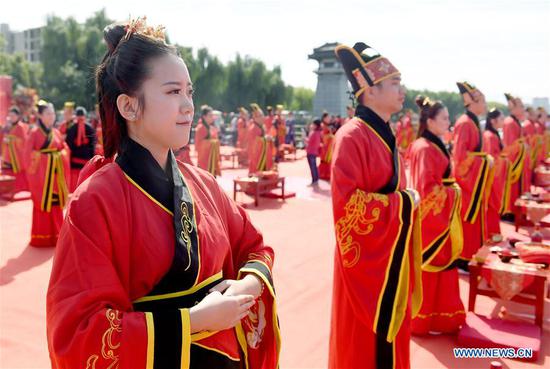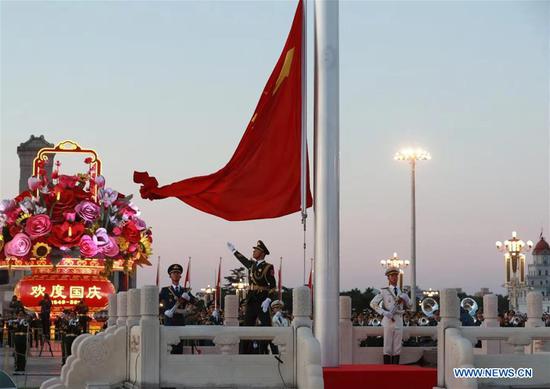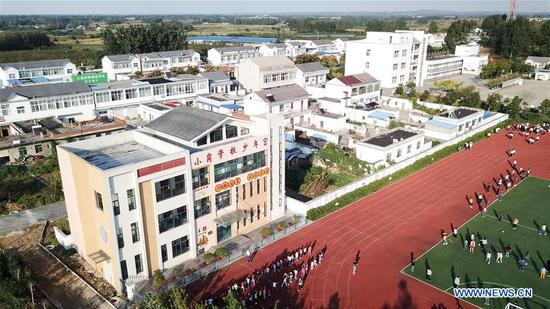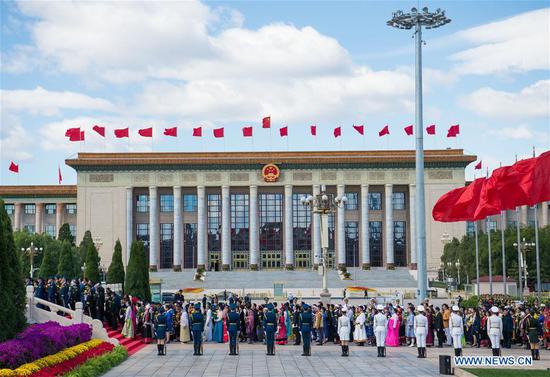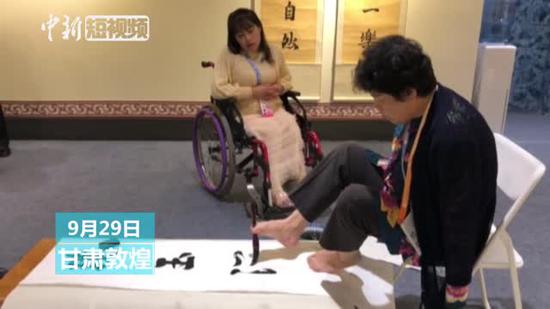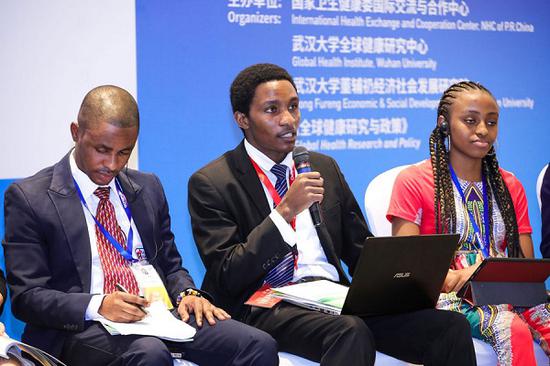
Gerard Nkengurutse attends a high-level meeting in Beijing in August on collaboration between China and Africa on health personnel training. (Photo/China Daily)
Lei said, "Studying in China is much cheaper compared with Western countries, and there are government-sponsored programs."
Take the MBBS program for example. This is a program in English for international students in China seeking a Bachelor of Medicine and Bachelor of Surgery degree.
They have to pay at least $15,000, or the equivalent, in tuition fees each academic year if they want to study in the United States or the United Kingdom. But it costs less than $5,000 on average in China, according to the country's University and College Admission System, an online portal for international students applying to Chinese universities.
Moreover, students spend less on dormitory accommodation at Chinese universities, a manager from the admission system said.
China has awarded scholarships to Africans traveling to the country to study. At the 2015 Forum on China-Africa Cooperation in Johannesburg, South Africa, China pledged to provide 30,000 scholarships to African students by this year.
Lei said, "This is better than just sending doctors to Africa, and China helps those countries in building their medical industry by training these doctors-to-be."
Keen interest among overseas students in learning medicine in China became apparent in the late 1990s. From 1999 to 2013, more than 200,000 students traveled to the country to study medicine, accounting for about 10 percent of all those from overseas.
This year, the proportion has risen to 25 percent, Lei said.
As the foreign influx continues to rise, the government has to strike a balance between ensuring that the quality of the education provided is not being sacrificed for the sake of increased enrollment.
The Ministry of Education first published the Interim Provisions for Quality Control Standards in Undergraduate Medical Education in English for international students in 2007. This is now reviewed and published annually.
Over the past 11 years, medical schools in China have had to be assessed for their educational quality, which determines whether the schools qualify to accept international students to study medicine as part of the MBBS program.
"Since 2014, the government has been endeavoring not only to focus on increasing the number of international students, but also on giving them a better medical education," Lei said.
That switch to stressing quality, rather than quantity, may be reflected in the fall in student intake numbers over the past five years.
The ministry sets the numbers for each qualifying university's MBBS student intake. For 2018-19, a total of 48 medical universities in China have been given permission to accept 3,470 MBBS international students, compared with 6,020 in 2013-14.
The government and universities also encourage international students to do internships at local hospitals before they graduate.
After studying at school, Nkengurutse began his one-year internship at the First Affiliated Hospital of Dalian Medical University in late 2014.
One of his initial difficulties was related to language rather than medicine.
Because few people could communicate well enough in English, Nkengurutse had to rely on his poor Chinese, and conversing was often difficult. But he persevered with learning the language, and six months later was having few problems in communicating fluently with all his patients.
Lei said, "For African students in China, language is the most important thing if they want to integrate into the local community and gain practical experience."
Students who know little or no Chinese can take classes taught in English, but it is becoming increasingly common for them to take courses so that they at least have elementary skills in Chinese, he added.
After many of the African students graduate, they return home, taking all their newly acquired skills with them.
Nkengurutse, now a postgraduate student at Dalian Medical University, said that after his education in China is completed, he may work as a doctor at a hospital for several years before returning to Burundi to "give something back to its people".









